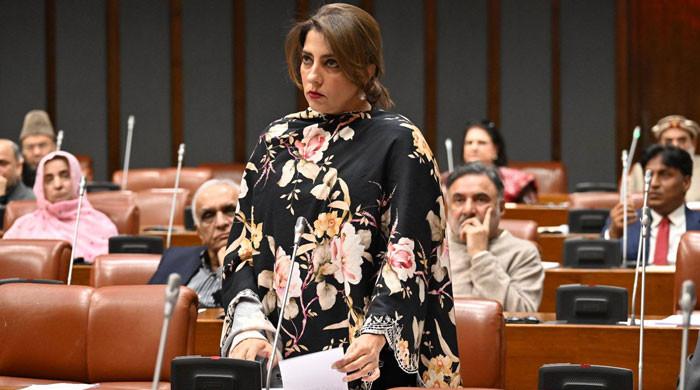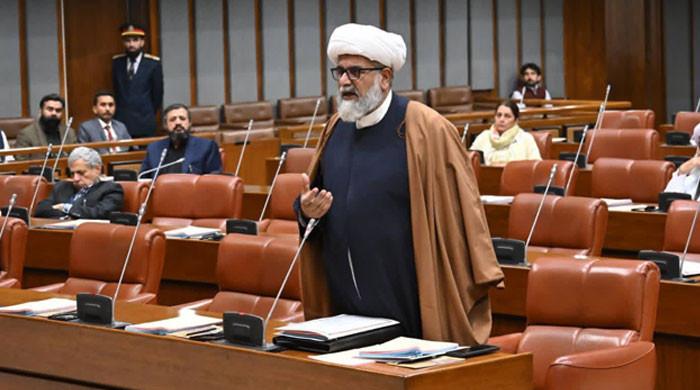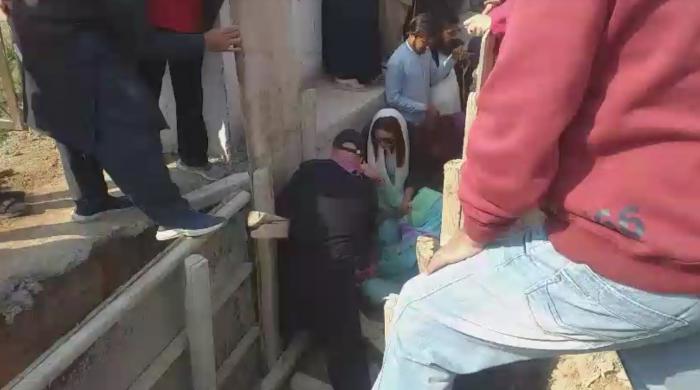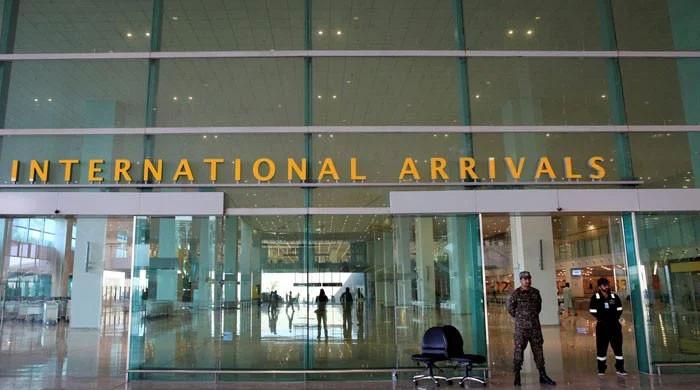Coronavirus: Intercity transport in Sindh to operate at 50% capacity
A day earlier, Sindh CM Murad Ali Shah had said if the NCOC does not take measures on transport, Sindh govt would
April 02, 2021
- Sindh govt issues new coronavirus SOPs for transport
- Passenger vehicles will operate at 50% capacity
- Transport secretary says Sindh to ensure compliance of SOPs
KARACHI: Passenger vehicles operating from one city to another in Sindh will operate at only 50% of its capacity, said a notification from the Transport and Mass Transit Department on Friday.
The decision, announced by the Sindh government, is in force with immediate effect and is binding on all passenger vehicles being used for intercity transport in the province.
"The coronavirus SOPs issued by the Sindh government will be strictly adhered to," said Transport Secretary Shariq Ahmad.
The provincial government further said all coronavirus SOPs will be strictly enforced and those who violate them will be punished.
A day earlier, Sindh Chief Minister Murad Ali Shah had indicated the government's intention to introduce new restrictions on transport.
The chief minister was speaking at an event at Karachi's Sindh Institute of Animal Health where he questioned the PTI-led federal government's decision to impose a coronavirus lockdown earlier when it was the one that criticised the move when Sindh went ahead with the plan.
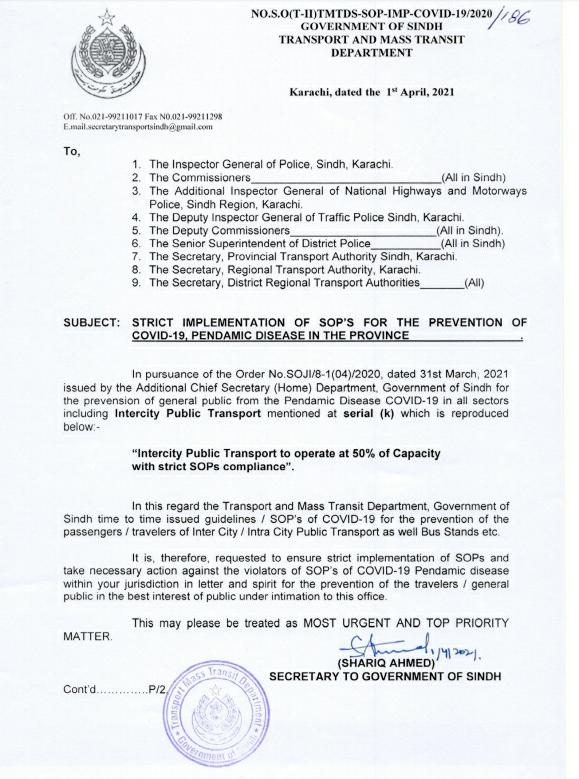
The Sindh chief minister had also underlined that the PPP-led provincial government had recommended shutting down intercity transport for at least two weeks — which, according to him, Planning and Development Minister Asad Umar said the NCOC would consider.
Shah had said PM Imran Khan "spoke time and again about how India imposed a curfew and shut down everything and how it was wrong but India had not imposed a curfew".
"The Indian [government's] mistake was that it did tell people to return to their homes but hundreds of thousands of people took trains, buses, and public transport to return to their villages and they interacted there and went on to infect their villages.
"We remained safe because we said we need to shut down trains and air travel and now, too, I have given the same recommendation which at the moment hasn't been rejected but the NCOC said it would consider it. However, if NCOC doesn't take these steps, we'll take them ourselves," he had said.





